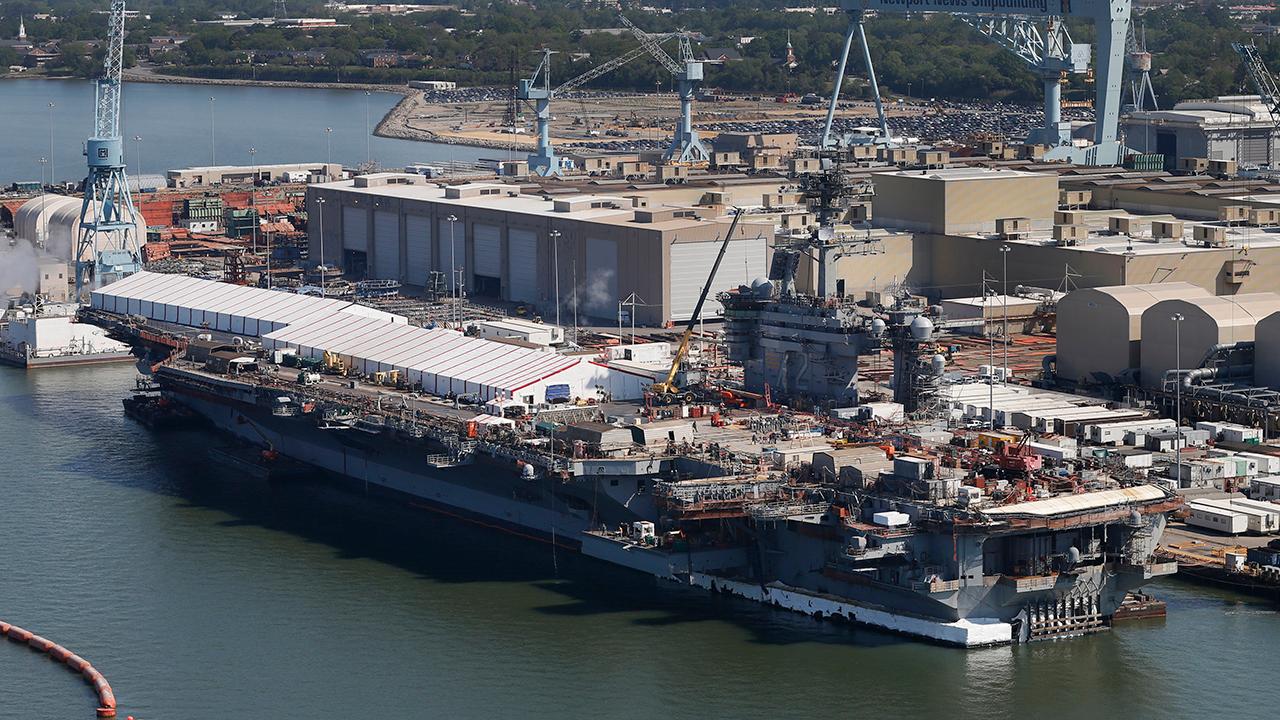What Iran's threat to close Strait of Hormuz means for oil and gasoline prices
Threats by Iran to shut down two of the world’s most important oil transit routes are creating one of the most serious geopolitical risks for oil prices in decades. The threats, while they seem a world away, may have a direct impact on your wallet.
One year after President Trump withdrew from the Iranian nuclear agreement and days after his administration refused to extend the waivers to buyers of Iranian oil, Iran retaliated with threats against the United States and its interests. Some of those include its very public threat to close the Strait of Hormuz, considered to be the world’s most critical chokepoint for global oil trade, and another threat picked up by U.S. intelligence that Iran has plans to carry out attacks in the Bab el-Mandeb strait, which is considered to be the fourth most important chokepoint.
While in the past the market has taken grandiose threats from Iran to close major oil routes with a grain of salt, the Trump administration is taking them seriously. If Iran closed the Strait of Hormuz it would lead to an immediate military response, not only by the U.S. but by the rest of the world. This waterway is so critical for the global economy; the world would have no choice but to respond.
Even if this waterway was shut down just for hours, it more than likely would cause a major oil price spike. According to the Energy Information Administration’s latest data, the strait accounts for 30 percent of all seaborne-traded crude oil and other petroleum products. The loss of that supply because of military action would cause panic, and while it is doubtful the Iranian military has the ability to keep the strait closed for an extended period of time, it might not matter because the oil price spike would have already happened. The damage to your wallet, as they say, would already be done.
The other waterway that is being threatened is the Strait of Bab el-Mandeb. While this straight, according to the EIA, only sees about 5 million barrels of oil transit a day, at the same closing it could keep tankers in the Persian Gulf from reaching the Suez Canal and the SUMED Pipeline, diverting them around the southern tip of Africa. That would cause oil supply to backup and deprive the world of those barrels, causing refiners to latch on to other supply. That would come at a high cost that would cause oil prices to again spike until that supply was allowed to move.
These threats by Iran show that they really have no regard for the global community. Instead of backing down, the White House is responding with shows of military force and even more sanctions. Now the U.S. is going after Iran’s industrial metals export business; issuing an executive order this week hitting buyers with sanctions and promised further action until Iran fundamentally changes its behavior. The order issued covers Iran’s iron, steel, aluminum and copper sectors; the Islamic Republic’s largest non-petroleum-related sources of export revenue and 10 percent of its export economy.
This may give the Iranian regime more reasons to lash out and if they do, get prepared for some price spikes. Even if Iran does nothing we are on track for higher prices. The recent tensions with Iran have already raised prices along with other risk factors from Venezuela, North Korea’s rocket man shooting off missiles and the ongoing fighting in Libya.
Oil prices that are now hovering in the mid sixties could go as high as $77 a barrel by Memorial Day. That also means that the U.S. national average for gasoline is headed back toward that $3.00 a gallon area.
CLICK HERE TO GET THE FOX BUSINESS APP
If that sounds bad, it could get a lot worse. You could add perhaps another $100 a gallon to that price if Iran tries to make good on its threats. If that happens we will feel the pain and we will see economic contraction. The price spike would cause people and businesses to pull back investment and could erode consumer confidence. Prices then would pull back after the market had time to adjust to the new risk realities.
Phil Flynn is senior energy analyst at The PRICE Futures Group and a Fox Business Network contributor. He is one of the world's leading market analysts, providing individual investors, professional traders, and institutions with up-to-the-minute investment and risk management insight into global petroleum, gasoline, and energy markets. His precise and timely forecasts have come to be in great demand by industry and media worldwide and his impressive career goes back almost three decades, gaining attention with his market calls and energetic personality as writer of The Energy Report. You can contact Phil by phone at (888) 264-5665 or by email at pflynn@pricegroup.com.




















